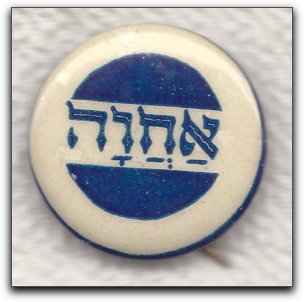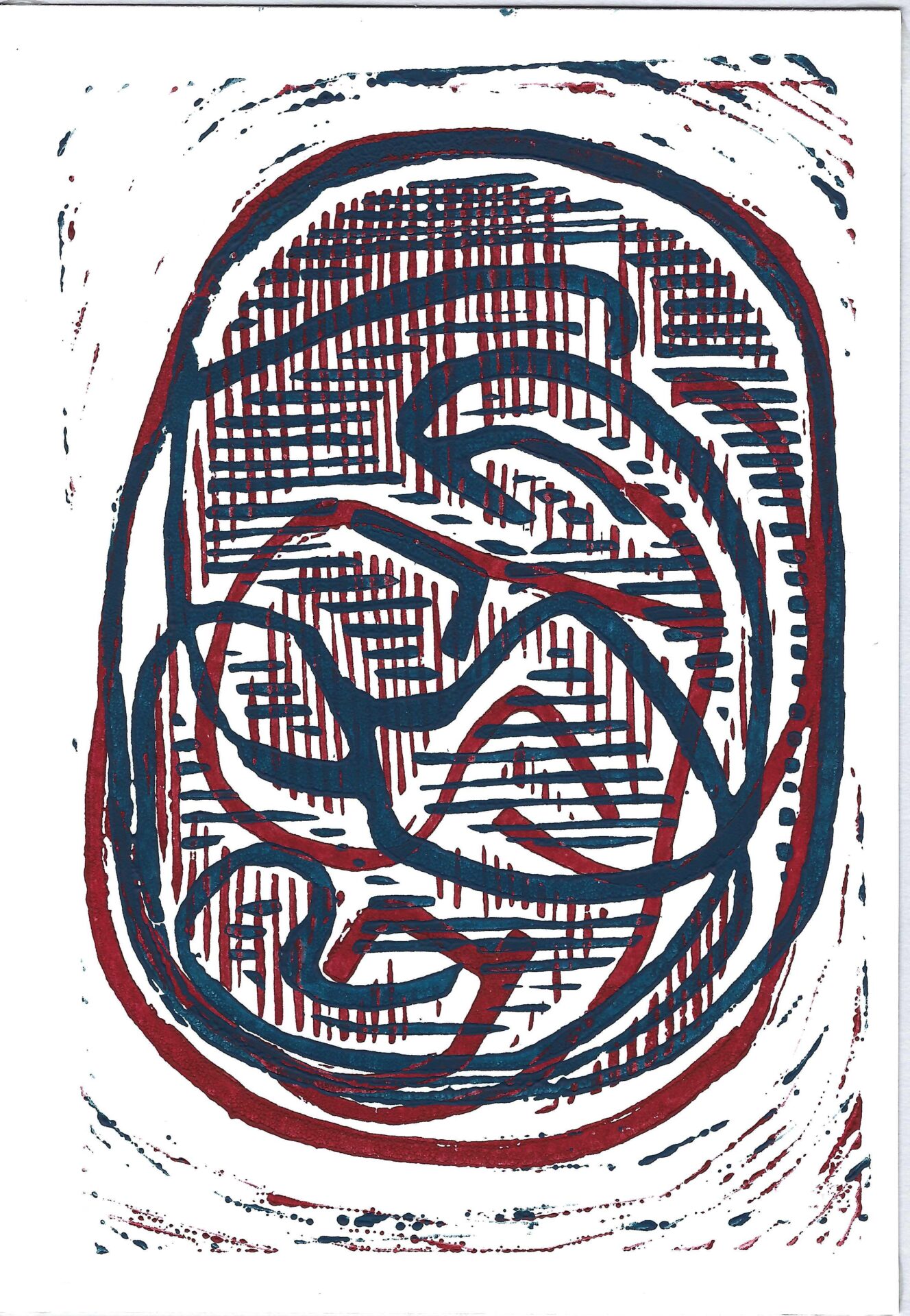judge everyone, how?
In Pirke Avot 1:6, R. Joshua ben Perachiah says:
והוי דן את כל האדם לכף זכות
The phrase is variously translated as:
- judge every man in the scale of merit
- judge every man towards merit
- Judge every person favorably
- Give all individuals the benefit of the doubt
- Judge the whole of a man to the side of merit
It is hard not to judge people. We do it all the time. Sometimes we make innocent, snap, judgements about the people we see as we walk around town: will that person walking in front of us move at the same pace, or perhaps sidle a bit to the right or left; is there space for me to move around him/her? At other times we often evaluate people we encounter, behind the cash register, or serving us our meal in a restaurant, based on aspects of their appearance: their dress, their hairdo; we “pre-judge” them using stereotypes and prejudices. These judgements may often be unfair and erroneous, but they help us get through the day.
the mazel of sanhedrin
I have recently become a fan of the novelist and philosophy professor Rebecca Goldstein. I learned of her when her first novel “The Mind Body Problem was published in 1983. For some odd reason, the novel did not grab me at the time. More recently I devoured her anti-biography Betraying Spinoza and decided to return to her fiction. After enjoying her recent novel 36 Arguments for the Existence of God I found her 1995 novel Mazel. (Aren’t libraries wonderful?!) There, on page 166, she has the following bit of text:
The puzzling passage occurs in the book of Sanhedrin. Each person, says the text, has been created absolutely unique as regards his appearance, his voice, and his mind. Therefore, each person should believe that the world was created precisely for him.
A baffling passage, no? Nachum was to believe that the world was created for him?
But now, he saw: the Master of the Universe has created for each person a world that he alone inhabits.
What is this one’s world like, and what is it like for that one?
What is your world like? How does it differ from the world I experience? Your world leads you to your feelings, thoughts and actions, as my world leads me to mine. I do what I can to understand your world, as I hope you attempt to appreciate mine. But we often, because of our many limitations, fall short and end up dealing with misunderstandings.
god’s prayer
My colleague Jack Bloom suggests that we approach one another using the prayer attributed to God in B’rachot 7a
May it be My (our) will that my compassion overcome my (our) anger and may my (our) mercy prevail over my (our) attributes [of justice and judgment].
May I deal with my (our) children in accordance with My (our) attribute of compassion.
May I act towards them beyond the letter of the law.
and what about ourselves?
We often misunderstand ourselves, imagining we are someone who we are not. We set up expectations that are unrealistic or berate ourselves for things over which we may have no control.
Sometime in the early ’90s I came upon the following text. I do not know how or where I found it. When I did, it seemed to be anonymous (it was at least without attribution). I tried to find the source, but, without the WWW and its search tools, I came up empty handed. Not finding the author, I even modified the text ever so slightly. I even posted the variant I had on my Web 1.0 site with a request that, if someone knew who wrote it, they should notify me. Since then, searching again, I think I have found the author. It appears to be Stephen Levine. I write “appears to be” because while “A Forgiveness Meditation” has that name associated with it, I cannot find a direct link from one to the other.
Update:
As I have added to the Web 1.0 site:
For many years I have indicated this as:
“ ‘Source unknown’ If you know who wrote this, please let me know.“
In March of 2013 someone wrote to me to inform me that it is from
“Who Dies?: An Investigation of Conscious Living and Conscious Dying” by Stephen Levine and Ondrea Levine; pages 81ff.
I treasure it and thank them for the work.
I read this text on the eve of Kol Nidre every year at my tiny congregation. I asked those gathered to close their eyes as I read:
Reflect for a moment on that quality we call forgiveness.
Bring into your mind, actually into your heart, the image of someone you know for whom you have much resentment.
Take a moment to feel that person right there at the center of your chest in the heart’s center. And in your heart say to that person:
I forgive you for anything you may have done in the past, either intentionally or unintentionally, through your thoughts, words, or actions that caused me pain. I forgive you.
Slowly allow that person to settle into your heart.
Don’t judge yourself for how difficult it is.
No force, just opening slowly to them at your own pace…. Say to them:
I forgive you. I forgive you for the pain you caused me in the past, intentionally or unintentionally, by your thoughts your deeds, your words. I forgive you.
Gently, gently open to them. If it hurts, let it hurt. Gradually open to that person. Open to that resentment, that incredible anger, even if it burns, ever so gently though. Forgiveness.
I forgive you.
Let your heart open to them.
It is so painful to hold someone out of your heart.
I forgive you.
Let your heart open just a bit more to them. Just a moment of opening, of forgiveness, letting go of resentment.
Allow them to be forgiven.
Now opening more to forgiveness, bring into your heart the image of someone from whom you wish to ask forgiveness.
Speak to them in your heart:
I ask your forgiveness for anything I may have done in the past that caused you pain, either by my thoughts or my actions or my words. Even for those things I didn’t intend to cause you pain, I ask your forgiveness.
For all those words that were said out of forgetfulness or fear. Out of my closed-ness, out of my confusion. I ask your forgiveness.
Don’t allow any resentment you hold for yourself block your reception of that forgiveness. Let your heart soften to it. Allow yourself to be forgiven.
Let yourself be freed.
Let any unworthiness come up, any anger at yourself… let it all fall away. Let it all go.
Open to the possibility of forgiveness
I ask your forgiveness for whatever I may have done in the past that caused you pain. By the way I acted or spoke or thought, I ask your forgiveness.”
It is so painful to hold yourself out of your heart.
Bring yourself into your heart. Say I forgive you,” to yourself. Don’t reject yourself.
Using your own first name, in your heart say,
I forgive you […].
Open to that. Let it be. Make room in your heart for yourself.
I forgive you.
All those resentments, let them fall away.
Open to the self-forgiveness. Let yourself have some space.
Let go of that bitterness, that hardness, that judgment of your self. Say:
I forgive you
to you.
Let some glimmering of loving-kindness be directed toward yourself. Allow your heart to open to you. Let that light, that care for yourself, grow.
Self-forgiveness.
Watch how thoughts of unworthiness and fears of being self-indulgent try to block the possibility of once and for all letting go of that hardening.
See the freedom in self-forgiveness. How can you hold to that pain even a moment longer?
Feel that place of love and enter into it.
Allow yourself the compassion, the care, of self-forgiveness. Let yourself float gently in the open heart of understanding, of forgiveness, and peace.
Feel how hard it is for us to love ourselves. Feel the pain in the hearts of all those caught in confusion. Forgive them. Forgive yourself. Let go gently of the pain that hides the immensity of your love.
how hard?
and then i would sing
Not as beautifully as Joan does here. (The photo is of Joan with her (then) 94 year old mother.) The poem “Be Not Too Hard” was written by the British poet Christopher Logue and put to music by folk-rock singer, Donovan (Leitch).
may we treat one another as sisters and brothers

אַחֲוָה
I currently wear this button. The Hebrew word אַחֲוָה means “siblinghood”. I hope if I am able to look on everyone as if they were my own sister or brother… whom I love dearly, I will judge them on the scale tipped toward the merit they deserve.
| Date: | 1930s or 1940s |
| Size: | 1.9 |
| Pin Form: | straight |
| Print Method: | celluloid |
| Text | אַחֲוָה |
your lapel buttons
Many people have lapel buttons. They may be attached to a favorite hat or jacket you no longer wear, or poked into a cork-board on your wall. If you have any laying around that you do not feel emotionally attached to, please let me know. I preserve these for the Jewish people. At some point they will all go to an appropriate museum. You can see all the buttons shared to date.

